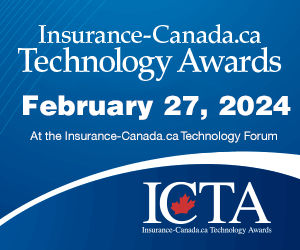On a disruption scale from 1 to 10, Blockchain could take the 10. But understanding it and making it work, on a difficulty scale from 1 to 10, might just rate a 15!
Going deeper, I believe that Blockchain is just not something that is intuitive, or will be in the near future. Especially when crypotocurrencies are thrown in.
I will trust the folks who have a solid hand on Blockchain and will promote this for one reason: Blockchain is a great tool to support and, more significantly, change the business of insurance and its results with customers.
What’s the Blockchain deal?
A recent article from CB Insights, How Blockchain Could Disrupt Insurance, highlights Blockchain benefits that could fit well with existing and new products and services.
Here is an existing consumer / broker work flow:
- Consumers skip on-line to call by phone to buy new policies;
- Contracts and claims notices arrive on paper, errors intact;
- Human supervision is necessary for the phone and paper handling;
- And, the main product, Risk.
And the results? AssumeBlockchain technology. Examples:
- Fraud detection & risk prevention: By moving insurance claims onto an immutable ledger, blockchain technology can help eliminate common sources of fraud.
- Property & casualty (P&C) insurance: A shared ledger and insurance policies executed through smart contracts can bring an order of magnitude improvement in efficiency to property and casualty insurance.
- Reinsurance: By securing reinsurance contracts on the Blockchain through smart contracts, Blockchain technology can simplify the flow of information and payments between insurers and reinsurers.
Out on the street …
Last spring, Neil Mitchell, ex of Marsh Canada, now an InsurTech Advisor, presented at the CIP Symposium. In an article from Canadian Underwriter, Mitchell addressed brokers, noting that reduced manual activities would reduce time and effort. The result will be pressure on existing commission rates, in the 20%-25% range.
Mitchell also noted recent activities by the Blockchain Insurance Industry Initiative (B3i), which will help practitioners utilize distributed legers in the reinsurance industry. These would increase flexibility and decrease manual time.
B3i The Blockchain Insurance Industry Initiative
B3i, and the underlying technology, is very new to the insurance community. And the insurers are leveraging the opportunities.
On the ‘welcome’ page, participants highlighted their value points:
B3i Services AG is a startup. The intent is to explore the potential of using Distributed Ledger Technologies within the re/insurance industry for the benefit of all stakeholders in the value chain.
B3i provides insurance solutions on a blockchain platform,offering opportunities for efficiency, growth and quality across the value chain to benefit all participants including end customers.”
B3i has 13 founding insurers / shareholders. Paul Meeusen is CEO, with a background in insurance and financial services.
B3i is keen on communication. From 12 July 2017 to today, there are 90+ media releases, pod casts, blogs, articles, etc. This is better than 1.2 contacts per week. (This is more than this scribbler can do!)
There are more opportunities, starting with regulations and data
B3i’s Chief Marketing Officer, , published a Blog on regulation, and the value / challenge of Blockchain.
In the Europe Union (EU), General Data Protection Regulation (GDPR) is ubiquitous. Earlier last year, the EU spent time and money to ensure that there was compliance with GDPR. Penalties are non-trivial. Marke writes:
Those that fail can face fines of up to 20 million Euros (or equivalent in sterling), or 4% of the total annual worldwide turnover in the preceding financial year – whichever is higher2.
There seems to be a conflict with Blockchain, however. The data on Blockchain, the data on the chain is “pretty much immutable”, i.e., it can’t be erased.
The conundrum was taken to Claire Bury, Deputy Director General, DG Connect, who commented:
Blockchain technology can directly support GDPR. There are different technical techniques…that can be used to better secure personal data. Blockchain provides auditability and transparency, which can help in protecting data subjects and enforcing GDPR.
The regulations could be revisited and updated to take account from new technologies.
Editor’s Note: The Blockchain is gathering momentum. We will be focusing on Blockchain with the target on Canadian Insurers, Brokers, and more.
Details: The 2019 Insurance-Canada Technology Conference will be held at The Beanfield Centre, Exhibition Place, Toronto on 26-27 Feb 19. Check this in!



